The journey of Marco Polo: Part one – the early years
It's been ten whole years now since the novel and fun idea of the Marco Polo "traveling cycling"...
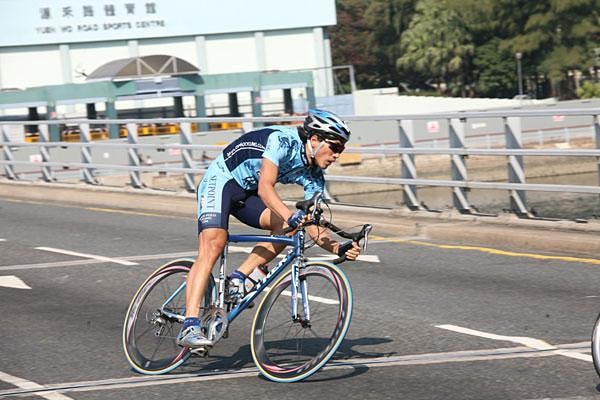
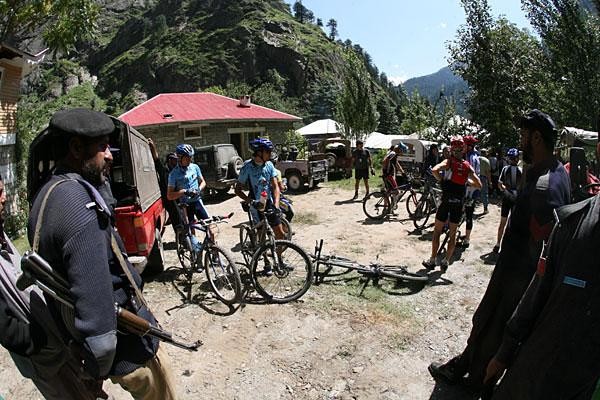
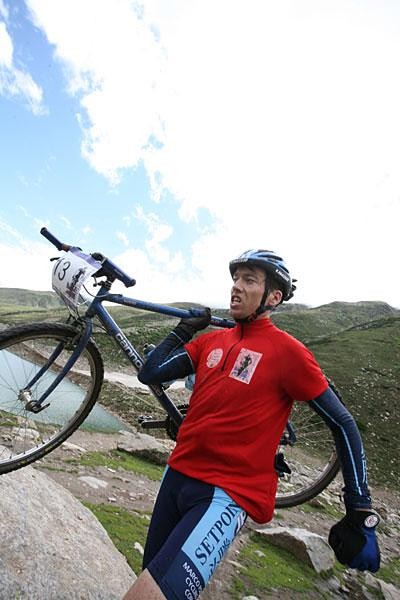

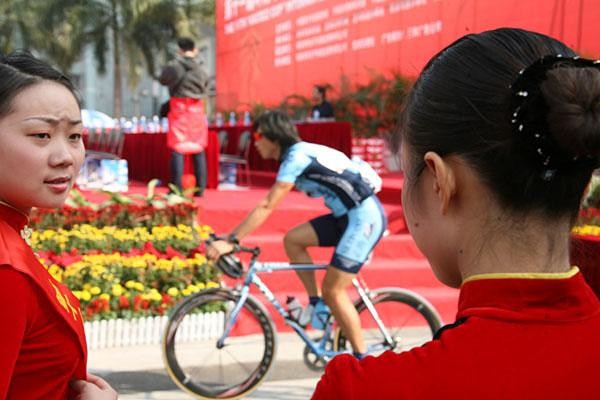


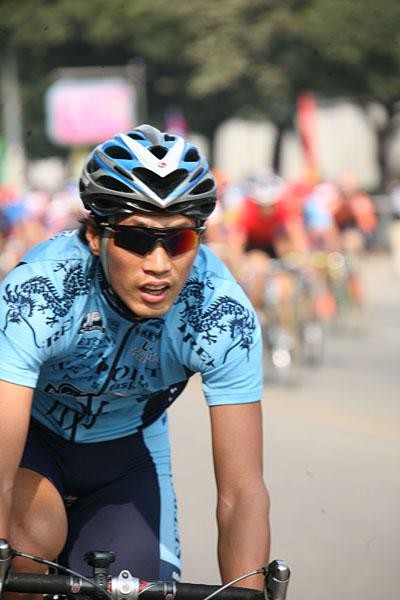
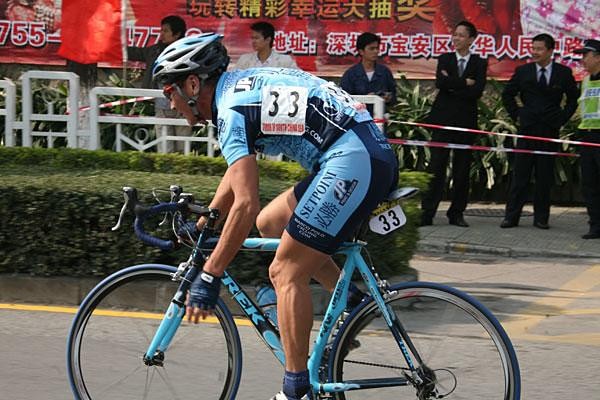
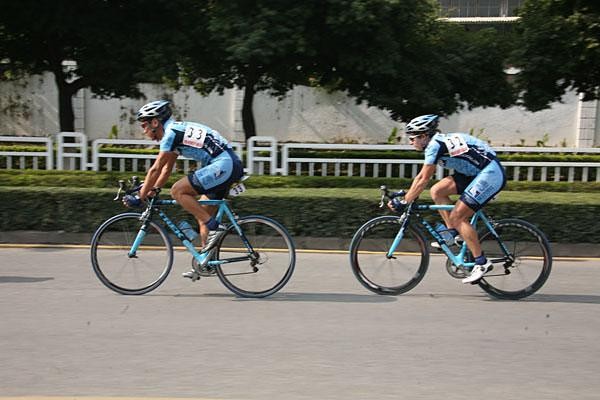
Tales from the Peloton, February 27, 2008
The Marco Polo cycling team is one of the most unusual and interesting outfits in the peloton, and have had a very interesting couple of years. Cyclingnews' Steve Thomas traces their voyage of discovery (pardon the pun) with help from one of its founders, Remko Kramer.
It's been ten whole years now since the novel and fun idea of the Marco Polo "traveling cycling" team was conceived. Now a decade on things have changed some – as they do with so many things in life; an idea which begins as fun doesn't simply stand still, or at least not if it's a good idea which is meant to be. Things tend to develop and become more serious with success, but even so the Marco Polo boys still retain a pioneering and fun spirit, which, after all, is what bike racing is all about..
The whole Marco Polo journey began back in 1998 with a chance meeting between Kiwi Nathan Dahlberg, Dutchman Remko Kramer and Dane Anno Pederson. The three were racing in the Sea Otter Classic in California, and they got to talking. Dahlberg was a seasoned ex-pro and former 7-Eleven Tour de France rider who was making something of a low key comeback following a bad accident, while the other two were on a racing and traveling holiday. They got to musing about adventure and racing, and the idea of combining the two; after all there is a whole wide world of cycling out there, and way beyond Europe there were delicious and exotic races just waiting to be ridden. Thus the plan to combine together to go and ride these races was born.
Over the next couple of years, along with Remko's brother Gudo, the original four man "unofficial" Marco Polo Team hit the road with the spirit of the great explorer very much to the forefront. Successful racing ventures in Uruguay, China and Pakistan lead to talks of bigger things, and possible an international team of like-minded people.
Despite big plans and proposals, it took a little while for the idea and philosophy of the team to take off in a commercially viable way, but by the year 2000 things were starting to happen. The Beijing Olympics had been scheduled, and for sure China was going to be gunning for gold through their various Sports Institutes.
They would be to be keen to promote cycling alongside the other sports, and with their Asian fascination, ideals, and associations, it seemed like a natural and wise home ground for the team. The large cultural gap between the west and Chinese society was met halfway, by registering the team in Hong Kong, just on the doorstep of China. They set up an alliance with the Hong Kong Cycling Federation which started in 2001, and the team was now official.
Get The Leadout Newsletter
The latest race content, interviews, features, reviews and expert buying guides, direct to your inbox!
This was a team like no other, and with different ideals, as Remko explained. "Our initial idea was one of adventure - to ride exotic races. We set up the Marco Polo Cycling Club on the Internet, for like-minded people, and have made a lot of supporters that way. Sponsors come and go – and cycling teams change, which we wanted to avoid. We wanted it to have longevity, like football clubs; there are always Barcelona's and Liverpool's, no matter who the sponsor is."
Things didn't stop there. As happens with any travel, minds had been broadened and things looked a little different. "We saw some amazing talent out there - riders who were physically great, and wondered why they didn't get to Europe. They had the ability and we wanted to help them get there. The pro peloton is all white, and there were some serious talents out there. We wanted to give them a chance."
The team's initial phase of collaboration with Hong Kong lead to them sending mixed teams for periods of time to race in Europe, with considerable success from riders such as Kam Po Wong. In their first official year the team won three UCI ranked tours; Qinghai, Morocco and Burkina Faso. "Many of the riders had it physically, but they really lacked experience, and I think they need a long time to learn that. With riders from places such as Eritrea and Mongolia, they have only ever raced in small groups, often on main roads and without too many corners, and also often very hilly. Throw them into a 150 rider kermesse in Belgium and this becomes a problem."
A team house was set up in the south of Holland to ease riders into European racing. The team gained results and stature, but at the same time retained its club and flexible ideal. It had progressed from a four men in a camper style of adventure to a serious entity, and a great hope for Asian riders - indeed the only hope of getting anywhere near European racing for most of them.
With the ever changing world of UCI rules offering little leeway to such set ups, the team had to sharpen its act and register as a TT3 in 2003. Shortly after contacts lead to the team to forge closer ties with China, it ultimately registered there.
As we all know China is big news in every sense; economically, and also ever more so in sporting terms. But, as many can testify, things are very different in China compared to Europe. A different system over the past half a century has lead to a totally different way of life, attitude to life and sense of priority. "In Europe riders have a passion for the sport, they do it because they love the sport and want to race and succeed," said Remko. "If they don't, then they don't last into the senior ranks. In China it is very different; everything is administered provincially, and cyclists don't just become cyclists, they are tested and selected through sporting institutes.
"This means they usually have the physical ability, but often without the passion. They only ever progress to a certain level, and for many of them that's enough. They get a nice comfortable lifestyle, and don't need to worry too much. But for us that was not enough, we had to take on the task of finding those who really had the will and passion to make it in Europe."
Things have opened up a great deal in China in recent years; it's nothing like it was 20 years back, so it's not as difficult as it once was for such athletes and teams to make unions. "There are some fantastic Chinese riders out there, and some with the right mentality. There is a lot of red tape involved in getting them on board, as we have to deal with the provincial institutes, but they are generally very happy to give the riders the chance."
As the worlds most populous country, China is well on it's way to becoming the world's most dominant economy, and is a huge target for western commercial interests, especially as it's wide open in terms of opportunity due to its years of repression. This idea has not escaped the bike business, as the song goes, "There are nine million bicycles in Beijing..." With1.3 billion people in China, many will at some time or another all want new bicycles as the economy thrives and their pockets become fuller. Most of these new bikes will actually be produced in Taiwanese China, and forwarded to foreign bike companies, such as Trek, a major sponsor of the Marco Polo Team – Trek China, that is.